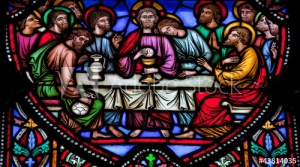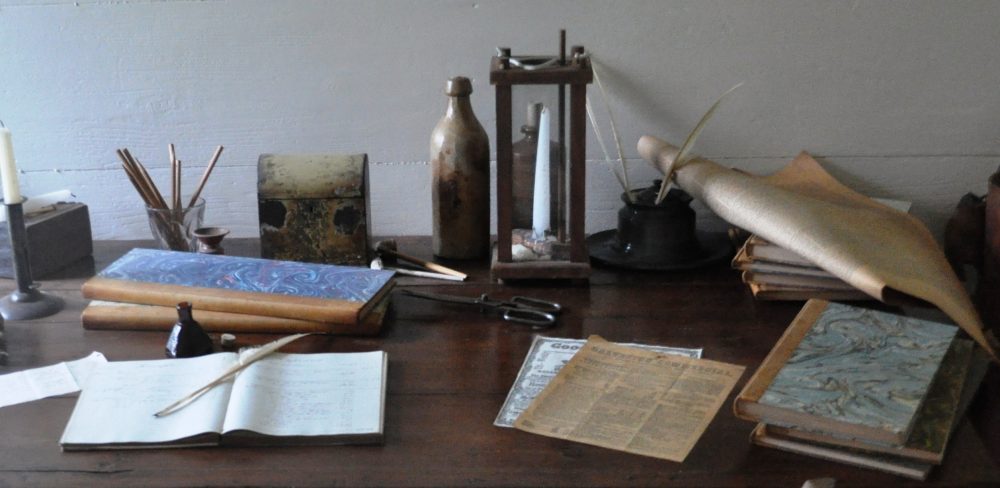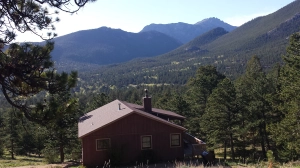 The Plot
The Plot
The Passover plot may have surprised many people, but it did not surprise Jesus, the Messiah, the Passover Lamb of God.
The Festival of Unleavened Bread, which is also called Passover, was approaching. The leading priests and teachers of religious law were plotting how to kill Jesus, but they were afraid of the people’s reaction.
Then Satan entered into Judas Iscariot, who was one of the twelve disciples, and he went to the leading priests and captains of the Temple guard to discuss the best way to betray Jesus to them. They were delighted, and they promised to give him money. So he agreed and began looking for an opportunity to betray Jesus so they could arrest him when the crowds weren’t around. (Luke 22:1-6 NLT)
The Preparation
Now the Festival of Unleavened Bread arrived, when the Passover lamb is sacrificed. Jesus sent Peter and John ahead and said, “Go and prepare the Passover meal, so we can eat it together.”
“Where do you want us to prepare it?” they asked him.
He replied, “As soon as you enter Jerusalem, a man carrying a pitcher of water will meet you. Follow him. At the house he enters, say to the owner, ‘The Teacher asks: Where is the guest room where I can eat the Passover meal with my disciples?’ He will take you upstairs to a large room that is already set up. That is where you should prepare our meal.” They went off to the city and found everything just as Jesus had said, and they prepared the Passover meal there. (Luke 22:7-13 NLT)
The Meal
When the hour for the Passover meal came, Jesus and his apostles reclined on cushions around a low table. Although usually a joyous celebration, this Passover meal would be a somber occasion. It would be a time of revelation, a new covenant, and the request for remembrance.
Jesus told the twelve he eagerly desired to eat this meal with them before he suffered. His statement held both an eagerness in eating the meal, and a sense of finality.
Once again, he told the disciples, his closest companions, his time of suffering neared. Jesus told them there would be a time when he would eat with them again.
Later.
When the kingdom of God came.
When the time came, Jesus and the apostles sat down together at the table. Jesus said, “I have been very eager to eat this Passover meal with you before my suffering begins. For I tell you now that I won’t eat this meal again until its meaning is fulfilled in the Kingdom of God.”
Then he took a cup of wine and gave thanks to God for it. Then he said, “Take this and share it among yourselves. For I will not drink wine again until the Kingdom of God has come.”
He took some bread and gave thanks to God for it. Then he broke it in pieces and gave it to the disciples, saying, “This is my body, which is given for you. Do this in remembrance of me.” (Luke 22:14-19 NLT)
The Final Cup
While offering the final cup of the Passover meal, Christ told his followers the cup was a new covenant in his blood poured out for them. It was a new agreement between God and his people. This covenant was superior to the covenant under the law handed down to Moses.
After supper he took another cup of wine and said, “This cup is the new covenant between God and his people—an agreement confirmed with my blood, which is poured out as a sacrifice for you.” (Luke 22:20 NLT)
The Betrayer
As soon as Jesus offered the bread and cup to his disciples, he revealed a betrayer was in their midst. He knew Satan would enter the one had who had walked with Jesus for the past three years.
Jesus knew the traitorous plot would unfold quickly in the Garden of Gethsemane. He knew whose hand would receive blood-money from the high priest. Jesus also knew his betrayal would come with a kiss.
“But here at this table, sitting among us as a friend, is the man who will betray me. For it has been determined that the Son of Man must die. But what sorrow awaits the one who betrays him.” The disciples began to ask each other which of them would ever do such a thing. (Luke 22:21-23 NLT)
The Servant
While Jesus knew all of this, the disciples wondered who the betrayer could be. Jesus prepared the disciples for what would soon take place that evening and the next day, yet they didn’t understand the gravity of his words.
Instead, in their need to prove they weren’t the betrayer, they argued over who was the most loyal. They argued over who was the greatest in the presence of the One who truly is the Greatest.
Jesus reminded his disciples they were not to be like those in the world who boast and try to outdo each other. He told them the greatest should be like the one who serves.
He reminded them greatness in God’s kingdom is found in serving others instead of serving self. As an example, the Son of God stooped and washed his disciples’ feet.
The Truth
We all have sinned and fall short of the glory of God. (Romans 3:23)
Through Christ’s sacrifice God justifies the ungodly. (Romans 4:5)
While we were still sinners, Christ died for us. (Romans 5:8)
We aren’t to take God’s grace lightly by continuing to sin. (Romans 6:1)
The wages of sin is death, but God’s gift is eternal life through Jesus. (Romans 6:23)
God has mercy on those on whom he will have mercy. (Romans 9:18)
Your Turn
Thirty pieces of silver.
The price the leading priests and teachers of the Jewish law paid Judas Iscariot to hand Jesus the Messiah over to them to be killed. Money Judas accepted to betray the man he’d lived with and learned from for three years. Coins he tried to return once he understood the impact of what his betrayal actually meant to Christ and to himself.
Thirty pieces of silver.
We may look at Judas and wonder how anyone who knew Jesus could do such a thing. Sometimes, though, I think we tend to overlook the times we’ve betrayed Jesus through our sins. I’ve heard it said that every time we sin, we crucify Christ all over again. Because it was for our sins he died.
Amazing love.
Undeserved grace.
Forever grateful.
Leave a comment below to share your thoughts on the subject. If you think others would appreciate reading this, please share it through the social media buttons.
Then Satan entered into Judas Iscariot, who was one of the twelve disciples, and he went to the leading priests and captains of the Temple guard to discuss the best way to betray Jesus to them. They were delighted, and they promised to give him money. So he agreed and began looking for an opportunity to betray Jesus so they could arrest him when the crowds weren’t around. Luke 22:3-6 NLT
I wish you well.
Sandy
Please sign up to receive posts every Tuesday and Thursday. Thanks.
My March post is up at Inspire a Fire. Please stop by and read it.
Scripture taken from the New King James Version. Copyright 1982 by Thomas Nelson. Used by permission. All rights reserved.
Image by Denis Doukhan from Pixabay.


 Today’s guest post, What Do You Choose in Waiting? Psalm 13, written by Anthea Kotlan, first appeared on
Today’s guest post, What Do You Choose in Waiting? Psalm 13, written by Anthea Kotlan, first appeared on  For over thirty years, Anthea Kotlan has served as a women’s ministry leader in the church and community. She has a passion for discipleship and encouraging women to walk confidently in their God-given calling. She designs women’s retreats, teaches Bible studies, writes, and enjoys speaking at events. Recently, she began serving on a church plant team in Conroe, Texas with her husband, a bi-vocational priest. Every chance she gets, she spends time laughing with her two adult daughters or snuggling her two grandchildren. Check out Anthea’s blog for weekly soul-tending devotionals from the Psalms.
For over thirty years, Anthea Kotlan has served as a women’s ministry leader in the church and community. She has a passion for discipleship and encouraging women to walk confidently in their God-given calling. She designs women’s retreats, teaches Bible studies, writes, and enjoys speaking at events. Recently, she began serving on a church plant team in Conroe, Texas with her husband, a bi-vocational priest. Every chance she gets, she spends time laughing with her two adult daughters or snuggling her two grandchildren. Check out Anthea’s blog for weekly soul-tending devotionals from the Psalms.  The following poem, I See You, Lord, was written by my writer-friend, Frances Gregory Pasch.
The following poem, I See You, Lord, was written by my writer-friend, Frances Gregory Pasch. I Press On
I Press On Although I found the historical detail of the weaving industry of the Biltmore Industries interesting in
Although I found the historical detail of the weaving industry of the Biltmore Industries interesting in  In 1970 W. Phillip Keller wrote a small book titled,
In 1970 W. Phillip Keller wrote a small book titled,  Although this gluten-free Cabbage Roll recipe is delicious, be forewarned, there are multiple steps to create it. So grateful Pilot is our amazing chef!
Although this gluten-free Cabbage Roll recipe is delicious, be forewarned, there are multiple steps to create it. So grateful Pilot is our amazing chef! Tandem
Tandem What Happened Next?
What Happened Next? The Plot
The Plot